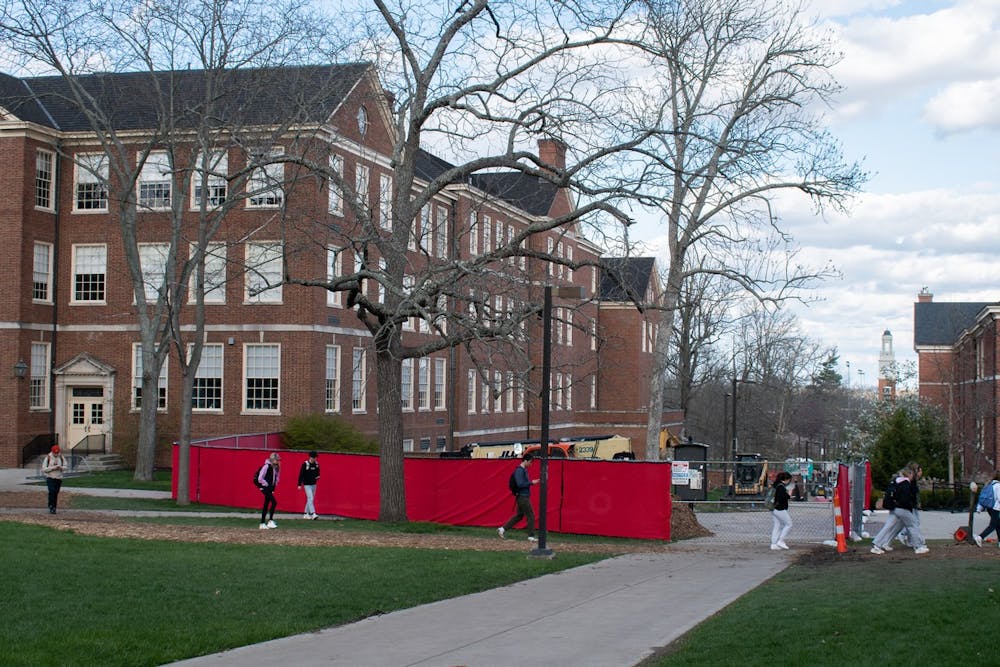Miami University students have had their routes to class interrupted for the past month due to part of Academic Quad being blocked off.
Upham Hall is undergoing renovations to install a system that will convert the central area of campus to hot water heating.
Eleven buildings on Miami’s central campus, from Hall Auditorium and King Library to Upham, currently run on steam heating. The construction project will install a hot water heating plant in the basement of Upham to service these buildings.
Don Van Winkle, the project manager, said hot water heating is more efficient because there are more losses associated with steam.
“The steam condenses, so then we have to capture all that condensate, get [it] into a pump [and] pump it back to our steam plant,” Van Winkle said. “When you have hot water, we’re running it at a lower temperature, so the difference between the ground that it’s running through and the fluid itself is less so there’s less losses.”
Malcolm Drane, director of energy systems at Miami, said another reason a hot water system is more efficient is because the water can be reused.
“We’re able to utilize the energy in a more efficient manner so we can transfer that warm water to different places and then use that water again to cool spaces on campus as well,” Drane said. “There’s a higher efficiency for heating hot water than the steam, which is a one-use type of energy source.”
This transition to more efficient energy contributes to the university’s sustainability efforts. In Sept. 2020, Miami President Greg Crawford signed the Presidents’ Climate Leadership Commitment (PCLC). One of Crawford’s goals for Miami in signing this commitment was to reduce energy usage.
Cody Powell, associate vice president of facilities planning and operations, said Miami has reduced its carbon emissions by 52% since 2008. In addition to reducing emissions related to energy usage, this project will also help save money.
Powell said energy costs make up a big portion of Miami’s budget.
“It’s important for us to do our part to be as efficient and effective as we can so we’re not always asking for additional funds to do things like heat and cool the campus,” Powell said.
Van Winkle said this project has been challenging because the construction workers are trying to work within an existing space.
Enjoy what you're reading?
Signup for our newsletter
“Most of our other plants are in buildings that were built to be a plant,” Van Winkle said. “They were designed to be large enough. [For this project,] we’re trying to find space in the middle of campus to suit what we need, rather than building the space.”
Van Winkle said steam will continue to be used at the new hot water plant until more buildings are converted.
“[Once more buildings are converted] we’ll be able to completely get rid of steam [heating] anywhere on campus, generate hot water at our steam plant and send hot water out,” Van Winkle said.
Drane said some buildings use steam for sterilization processes, so even after buildings are converted to hot water heating, steam will still be used in some places.
“Those buildings still require steam, even after the transition,” Drane said. “[It’s difficult] trying to figure out the best way to transition buildings off of steam, while also keeping buildings that need steam on that service.”
Powell said he understands the disruption this type of project creates and thanks the university community for their understanding.
“I know it’s frustrating to students and faculty when we have these types of projects,” Powell said. “But I appreciate everybody’s patience because I think the project is so important to achieving our PCLC and our sustainability initiatives.”
The transition for all campus buildings to hot water heating is set to be completed by 2026.




